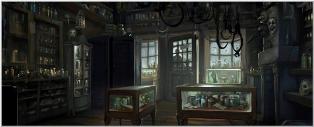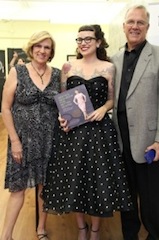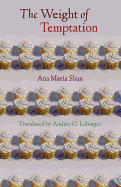 Welcome to The Reeds, a penal colony for over-eaters. Minimum stay: three months. Be prepared to be addressed as fatty and subjected to a near starvation diet. No radios or cell phones allowed. Talking about food is forbidden. Cooking sections are ripped out of magazines. The watchtowers are manned at night. Punishment means a reduction of rations. Weigh-ins are mandatory. Your jaws may be sewn up with wire. You are not a patient. You are a Camper.
Welcome to The Reeds, a penal colony for over-eaters. Minimum stay: three months. Be prepared to be addressed as fatty and subjected to a near starvation diet. No radios or cell phones allowed. Talking about food is forbidden. Cooking sections are ripped out of magazines. The watchtowers are manned at night. Punishment means a reduction of rations. Weigh-ins are mandatory. Your jaws may be sewn up with wire. You are not a patient. You are a Camper.
Seldom has a novel been so obsessed with eating, so aware of calories, so conscious of weight loss and weight gain as Ana Maria Shua's The Weight of Temptation. Shua defines her characters by their poundage, writing in a familiar inner voice of excuses and guilty rationalization. Slices of forbidden bread are fondled ecstatically. Desperate Campers smuggle little carrot sticks in their clothes. Dog kibble is an illicit black market delicacy. Courting lovers pass hot, sweaty lumps of chocolate candy.
Shua clearly knows her food psychology. "Like any addict," she writes, "she never gave up the search for a magic formula that would allow her to continue enjoying the pleasure of the drug without suffering its consequences." Her brave fatties are swiftly sketched but unpredictable with human contradictions and depth: Denise the librarian, with a literary example for every occasion; Alex the sexy restaurant owner who would have been attractive a hundred pounds earlier; Jughead, a 6'7", 600-pound mass of pure love who unchecked could eat himself to death; and the 16-year-old, 300-pound Carola, who leads the adolescent revolution taking over the fat farm.
But it is Marina Rubin around whom the novel ultimately revolves. Marina had a nearly perfect figure on the day she married Tomas Carletti, then gained 22 pounds in her first year of marriage. She gained another 48 pounds in her first pregnancy; her second pregnancy resulted in 35 more. Now, at 5'2" and age 43, she weighs 207 pounds. She's tried Atkins. She's tried Scarsdale. She's tried acupuncture. Her desperate search for the right doctors, the right weight loss program, the right drug have led her to pay the exorbitant fee, say goodbye to her family and enter The Reeds.
Are thinness, youth and beauty really the ultimate values of the human race? Science fiction, allegory or parody, this tasty little novel serves up a witty parody of today's calorie-obsessed culture to sweeten its merciless, well-aimed bite. --Nick DiMartino, Nick's Picks, University Book Store, Seattle
Shelf Talker: A bleak, drily funny dystopian novel from Argentina set on a fat farm, where calories and weigh-ins become a nightmarish way of life.
 Linda Nurick plans to open her new shop, Cellar Door Books, in the Canyon Crest Towne Center in Riverside, Calif., by early November. The Press-Enterprise reported that Nurick was motivated to launch the venture after the closing of Imagine That!, a Towne Center bookstore for kids "where she practically raised her two children."
Linda Nurick plans to open her new shop, Cellar Door Books, in the Canyon Crest Towne Center in Riverside, Calif., by early November. The Press-Enterprise reported that Nurick was motivated to launch the venture after the closing of Imagine That!, a Towne Center bookstore for kids "where she practically raised her two children."





SHELFAWARENESS.0213.S4.DIFFICULTTOPICSWEBINAR.gif)




 It's back-to-school time for J.K. Rowling's interactive
It's back-to-school time for J.K. Rowling's interactive 
 "Recently, I was in Boston and interviewed Barbara Shapiro, who has a novel in October--The Art Forger. We toured the Isabella Stewart Gardner Museum, had a lemon martini at the Copley Plaza, and a relaxed time at her home."
"Recently, I was in Boston and interviewed Barbara Shapiro, who has a novel in October--The Art Forger. We toured the Isabella Stewart Gardner Museum, had a lemon martini at the Copley Plaza, and a relaxed time at her home."SHELFAWARENESS.0213.T3.DIFFICULTTOPICSWEBINAR.gif)
 A week ago last Saturday, the Sewing Studio in New York City hosted the launch party for Gertie's New Book for Better Sewing: A Modern Guide to Couture-Style Sewing Using Basic Vintage Techniques by Gretchen Hirsch (Melanie Falick/STC Craft). Here, in a dress she made, Hirsch is flanked by her parents, Patty and David Sauer.
A week ago last Saturday, the Sewing Studio in New York City hosted the launch party for Gertie's New Book for Better Sewing: A Modern Guide to Couture-Style Sewing Using Basic Vintage Techniques by Gretchen Hirsch (Melanie Falick/STC Craft). Here, in a dress she made, Hirsch is flanked by her parents, Patty and David Sauer. More than 130 people attended
More than 130 people attended  Here's a first, at least in our book: Tom Campbell, co-owner of the
Here's a first, at least in our book: Tom Campbell, co-owner of the  Congratulations to
Congratulations to  Sutton
Sutton Welcome to The Reeds, a penal colony for over-eaters. Minimum stay: three months. Be prepared to be addressed as fatty and subjected to a near starvation diet. No radios or cell phones allowed. Talking about food is forbidden. Cooking sections are ripped out of magazines. The watchtowers are manned at night. Punishment means a reduction of rations. Weigh-ins are mandatory. Your jaws may be sewn up with wire. You are not a patient. You are a Camper.
Welcome to The Reeds, a penal colony for over-eaters. Minimum stay: three months. Be prepared to be addressed as fatty and subjected to a near starvation diet. No radios or cell phones allowed. Talking about food is forbidden. Cooking sections are ripped out of magazines. The watchtowers are manned at night. Punishment means a reduction of rations. Weigh-ins are mandatory. Your jaws may be sewn up with wire. You are not a patient. You are a Camper.